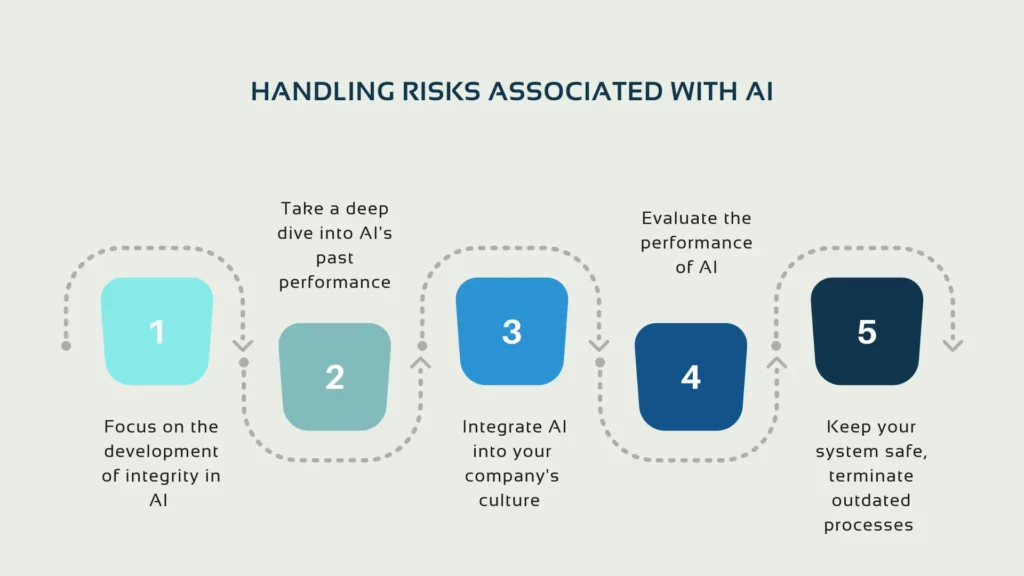How Artificial Intelligence brings success to business


Which technology is leading the world forward nowadays? Certainly, Artificial Intelligence is among those solutions that have recently become efficient, competitive tools. In 2021, 86% of CEOs claimed that AI was a company’s mainstay, which is hardly surprising. However, before speaking about how Artificial Intelligence would benefit your enterprise (we will explore four current uses of AI), we need to clarify the term itself. People tend to utilize it for defining any software engaging human-like processes.
Although naming applications based on planning, learning and problem-solving artificial intelligence is technically correct, it does not unfold any specifics. So let us dig deeper in the next paragraph to understand how the technologies operate and are predominant in business nowadays.

Machine learning
Primarily, it handles vast amounts of data promptly, identifying anomalies and the main patterns. It makes machine Learning indispensable for the Internet of things and turns connected wireless devices into digestible data sources. ML is also critical for optimizing the work of machines: in case some functions are at a decreased capacity, the tool defines it and notifies employees about the need to contact preventive maintenance teams for corrections.
Yet, we need to mention here that the technology is an umbrella tool as well, and the development of AI neural networks encouraged the evolution of what we call deep learning.
Deep learning
Simply put, deep learning is the more specific branch of ML, equipped with more advanced functions (for instance, fraud detection). The technology is distinctive by analyzing multiple factors simultaneously. Assuming you have to prepare self-driving cars for a smooth operation. In that case, exceptionally helpful would be to provide them with the data on other objects’ distance, their speed and the justified prediction of what will happen in the next 5-10 seconds. That is DL’s task to assist self-driving vehicles in making decisions.
It is noteworthy that deep learning is used even more often than ML, as older ML mechanisms reach a particular amount of data and then plateau the processing of content. Meanwhile, DL keeps up working effectively as more info is received. As a result, deep learning implies more independency and space for scaling.

Businesses have a wide-open field of AI-based tools: from chatbots and targeting to creating predictive recommendations. Moreover, AI and applications that have it at their core allow you to stay updated with modern tech trends and earn a living. And here’s how:
Using Artificial Intelligence tools in Operations
AI is key to automating work processes and freeing up space for accomplishing more complex projects or tasks with a higher priority:
Using Artificial Intelligence tools in Accounting
Since Artificial Intelligence never tires and sleeps, it can upload files, read them and sort them by the accounting codes during the workday.
Using Artificial Intelligence tools in Marketing
AI is primarily associated with obtaining detailed insights on target customers: businesses may use data to increase conversions and shorten the workload of marketing teams. With the help of AI, you can know how users interact with a website, what devices they prefer to use and get information on customers’ demographics and location.
Using Artificial Intelligence tools in Sales
Harvard Business Review informed that AI improves leads by around 50%, decreases call time by 60-70% and has cost reductions of 40-60%. Here are the most fruitful ways to utilize the technology in sales:

Security experts advise approaching AI risk management similarly to how you would prefer to organize that while onboarding new employees who need to follow the organization’s values. The European Commission’s High-Level Expert Group on Artificial Intelligence’s Ethics Guidelines for Trustworthy AI highlighted five essential steps for confronting AI hazards:

At PNN Soft, we have experience, passion for innovative technologies and readiness to accomplish challenging tasks. We provide clients with best-in-class programming products with an AI in their core. We have been delivering programming products for 20 years and honing our skills to put our ideas into the newest solutions and services. In this process, we emphasize strengthening security both during and after development.
We immerse ourselves in analyzing individual companies’ features and needs. That is why our clients prefer a long-term cooperation.
PNN Soft actively uses Agile, Scrum, and RAD methodologies to interact with clients effectively, satisfy customers’ needs and obtain more flexibility. Our Agile teams of experts include software developers, GUI designers, testers, technical writers, and managers.
If you are considering applying AI to optimize a workflow, fill out the form below.